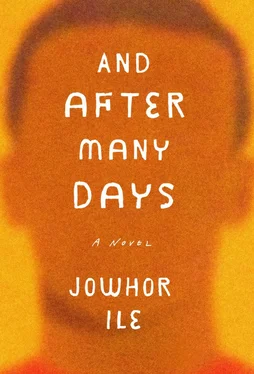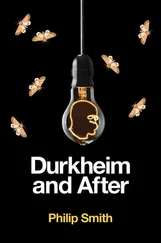—
The storm that came down on Port Harcourt the next morning was unexpected. Ajie was sitting by the window feeling morose, his face up against the cold, damp air coming through the window. He didn’t even have to move much to see the roofs of all the bungalows below their building, the NITEL telephone mast, the glass high-rise that had a bank’s name on it, and beyond that, in his mind’s eye, was the Port Harcourt Zoo, where Uncle Tam and Auntie Leba had taken Paul and Bibi. That morning, he had felt a lot worse and just wanted to stay in bed, so he told Auntie Leba he was feeling tired, that he had a little headache. She began to fuss over him, asking how he was feeling, whether he was running a temperature. Ajie said no, he was just tired, so Auntie Leba told him he could rest at home, and Barisua had to stay back to keep an eye on him. Uncle Tam asked if there was anything he wanted and said they would stop by the shop to get him some goodies.
Now Barisua had turned on the radio, and there was a jingle from the Ministry of Health, a caution against littering that ended with “Keep Port Harcourt clean. The Garden City of Nigeria.”
A strong wind lifted and thrashed about the zinc roofs outside, swaying the TV antenna. Barisua stepped in from the balcony and shut the door behind her with a loud bang. Ajie took the book he was reading and headed for the bathroom.
“How are you feeling?” Barisua asked.
“Fine,” he said.
“If you are feeling worse, tell me. Uncle Tam gave the instruction that I should look after you,” Barisua said, and Ajie just replied “Okay” and went into the bathroom and shut the door.
He didn’t feel the need to go, so he sat on the covered toilet bowl with his shorts still on. He turned the page of the book he was reading but wasn’t taking in the words. He listened to the sound of the rain on the roof and the wind whipping about outside.
The rain stopped suddenly, and Barisua knocked on the door. “Are you there?”
“Yes.”
“What are you doing? Are you giving birth or what?”
Ajie put the book down and frowned at the door. He imagined her leaning close with her ear by the keyhole, then standing back, arms akimbo, waiting for an explanation when he stepped out.
“I’m just sitting down here,” he answered. “I’m just sitting here reading. I don’t know what’s coming out of me.”
“What?” Barisua laughed.
Ajie turned a page of the book.
“You are so funny, this boy,” Barisua said, still sounding amused. “You think I have time for you, it’s just because you are not well. When you finish, come let’s play Whot.”
They played three sets of the game and Barisua won all. Ajie shuffled the pack of cards slowly, as if about to deal out, and then hissed and said he was bored and that Whot was a silly game anyway. Could Barisua play Scrabble? He would trash her at that. Was she any good at table tennis? He was the champion now in their house. He trashed Paul most of the time. Bibi, too, except when she cheated, which was often.
“Until we play those other games…As for this one, I’ve beaten you three times.”
“I bet it’s the only thing you do well.”
“You have a sharp tongue! Small boy with bad mouth. If you weren’t sick, I would twist it for you until you began to cry.”
Ajie laughed. He wanted to tell her he was only joking, but he refrained. He stretched out on the bed and reached for a pillow to rest his head.
“Why do you like making trouble so much?” Barisua asked him.
He had no quick comebacks, and Barisua was waiting for an answer.
“Why do you like making trouble so much?” she asked again.
Most of the questions he had been asked all his life were questions that had previously been asked of other people: questions Paul had grappled with, questions Bibi had supplied answers to, and all he had to do was vary his siblings’ response; but right now he was treading water, struggling to stay afloat rather than be drawn in by Barisua’s big steady eyes that were on him. He felt that for the first time, another human being was looking at him, really looking at him.
“You always say what you are thinking. I like it.”
He pretended he hadn’t heard her; he allowed his head to sink deeper into the pillow, and they both fell silent for a while.
Before he touched her, he knew she was not asleep. She was lying there breathing softly, her face turned the other way. He placed his hand on her shoulder like he was about to shake her awake, then he just left his hand there. He let his fingers slide up toward her neck, and Barisua turned around and opened her eyes. Now was the moment for him to say, “I wanted to wake you up,” or “Is the paracetamol on the fridge?” But he didn’t say any of these things.
Barisua was silent, too. There was the sound of pounding from downstairs, mortar meeting pestle, and voices from the neighbor’s kitchen as someone made lunch. The sun was out now, and on the fence outside the window, a red-necked lizard eased himself out of a hole on the wall.
“What are you doing, this boy?” Barisua asked, lying on her side now, facing him fully. She looked bemused but completely unfazed by whatever he might turn up with.
“Nothing,” he replied, and hearing his own voice, a familiar thing in this extraordinary landscape, must have been what egged him on. The lines on her neck were a deep brown that could have been purple; he stretched his hand and ran it tenderly over her collarbones. He did not think, What am I doing? He was moved by the twin rising of her breasts beneath her cream T-shirt, and her chest that kept breathing up and down. Barisua shifted on the bed and moved closer to Ajie until they were lying with their noses next to each other. She placed her hand on his cheek and pressed her body to his, and ran her hand slowly from the hair on his head to his shoulders, way down to the small of his back. In that moment, all Ajie could think was So, this is what it means to touch another human being.
—
Bendic came to pick them up the next day. The children had been expecting him all morning. Bibi stood on the balcony looking down at the narrow street as cars approached and then went back inside and brought her bag to the parlor. Auntie Leba asked if they had packed all their things and then handed each of them a wrapped gift. “Don’t open it yet,” she said with a smile. Uncle Tam said he had really enjoyed the children’s visit and that he would ask their father to bring them on their next holiday. “Well, I hope they enjoyed their stay,” Auntie Leba said jokingly. “We can’t force them to come back if they don’t want to.” Bibi said she had enjoyed her stay, and that besides, they hardly got to visit anyone’s house, so this was a rare chance for them. Ajie thought it was weird: Auntie Leba and Uncle Tam asking if they had enjoyed their stay. Couldn’t people just tell when someone was having a good time? Why was Bibi giving that speech?
Paul heard the toot of Bendic’s horn and shouted, “I think he has arrived!” and rushed down the stairs. Ajie and Bibi followed, skipping steps and arriving outside breathless just as Bendic was getting out of the car. They ran toward him, and for a moment it wasn’t clear if they were all going to run into him in some sort of group embrace, but that was exactly what they did, and the impact of their hug made Bendic stagger backward one step, laughing. “Where is Ma?” “What did you buy for us?” “You are looking so fresh, Bendic.” “We were so worried, we thought you were on that plane that crashed.”
Uncle Tam, Auntie Leba, and Barisua all came downstairs to join them. The children ran up to get their bags, and when Ajie came down with his, Auntie Leba was talking to Bendic about the plane crash. Uncle Tam mentioned someone the three of them knew who had died in the crash, and Bendic said the husband of one of Ma’s colleagues was on the flight. Paul and Bibi came down and put their bags in the trunk. Bendic was telling Uncle Tam about their trip, and at some point Uncle Tam stepped back to look at him, saying, “See how America’s cool weather has made your skin so fresh in just two weeks. Sun is killing us here.” He shook his head at Bendic in admiration.
Читать дальше












